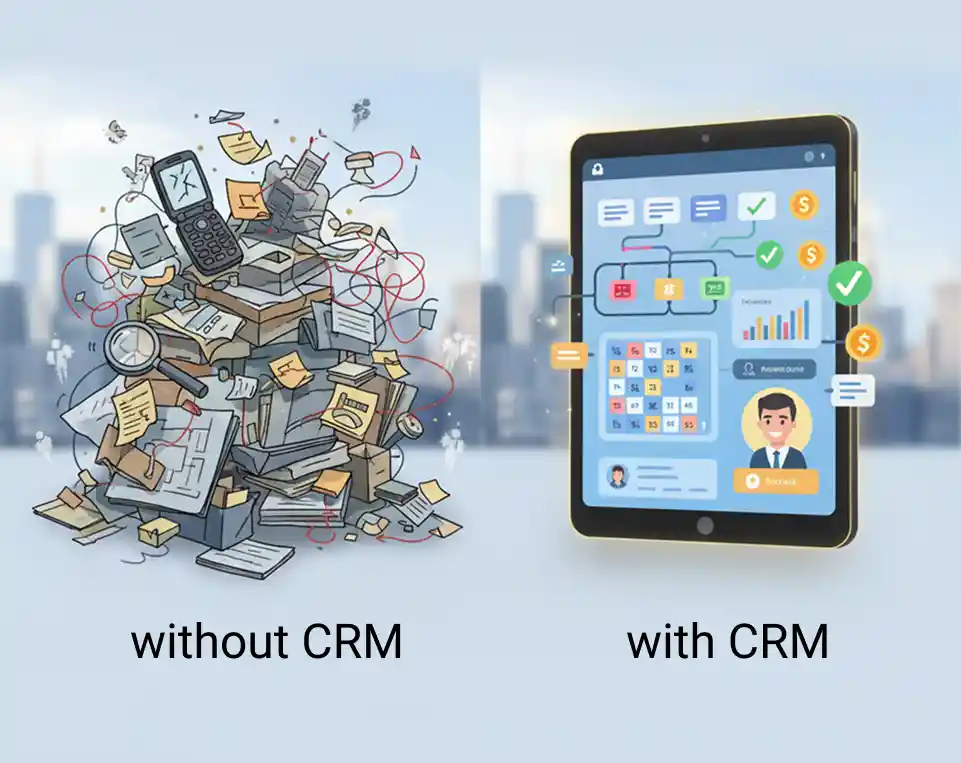
2025-11-08
The real estate market has always been focused on relationships, but in the digital age, this is no longer enough. Today, success is defined by speed, personalization, and effective data management. This is where CRM (Customer Relationship Management) comes in—a system that doesn't just organize but fundamentally transforms the future of the realtor business.
CRM converts real estate agencies from chaotic intermediaries into highly organized, customer-centric business machines.
1. Next-Level Personalization: A Client-Centric Approach
The days when all client information was stored in notebooks or unstructured spreadsheets are gone. Modern CRM is the single source of truth about every client.
- Deep Needs Understanding: The CRM records every touchpoint: from the first inquiry and property viewing to comments about the "kitchen being too small." This allows the agent to offer not just apartments, but ideal solutions.
- Timely Communication: The system automatically reminds the agent about the next call, a transaction anniversary greeting, or providing new properties that match refined criteria. This proactivity significantly boosts loyalty.
2. Automation and Productivity Growth
The future of the real estate market lies in freeing realtors from routine tasks so they can focus on closing deals and building relationships.
- Lead Generation Automation: CRM integrates with advertising platforms, aggregator websites, and social media, automatically collecting and qualifying leads.
- Pipeline Management: A visualized sales pipeline allows managers and agents to see the status of every deal, predict income, and identify "bottlenecks" in the process.
- Streamlined Documentation: Automatic generation of contracts and reports saves hours previously spent on paperwork.
➡️ Learn how acan organize your sales and lead generation. CRM system
3. Data-Driven Analytics and Decision Making
CRM transforms raw data into valuable business insights, which is critical for strategic planning in real estate.
- Forecasting and Reporting: The system can forecast demand for specific property types in certain areas based on client behaviour.
- Performance Evaluation: Agencies receive clear reports on the ROI of marketing campaigns, the productivity of individual agents, and the reasons for deal breakdowns. This allows for swift strategic correction.
4. The Role of Artificial Intelligence (AI) in the Future of CRM
The integration of AI elevates real estate CRM to an entirely new level, defining its future.
- Predictive Analytics: AI within the CRM can predict which property a client is most likely to purchase, or which lead has the highest conversion probability, allowing agents to focus on hot clients.
- Chatbots and Virtual Assistants: Integrated bots can handle initial inquiries 24/7, qualify leads, and even schedule meetings, ensuring a continuous client flow.
5. Mobility and Flexibility
In the dynamic world of real estate, where agents are constantly "in the field," mobile access to the CRM is not a luxury, but a necessity.
Modern CRM solutions offer fully functional mobile applications that allow agents to:
- Update deal status immediately after a meeting.
- Instantly add new contacts.
- Review communication history before calling a client, directly from their mobile phone.
Conclusion:
CRM is not just a tool for managing a client database; it is a strategic asset that allows a real estate agency to scale, provide high-quality service, and remain competitive in a world where technology evolves rapidly. The future of the real estate market belongs to those who can turn data into trusting and profitable relationships.
Recent post
Tagscloud
Subscribe our weekly subscription
Add some text to explain benefits of subscripton on your services. We'll send you the best of our blog just once a weekly.

_11zon.webp)